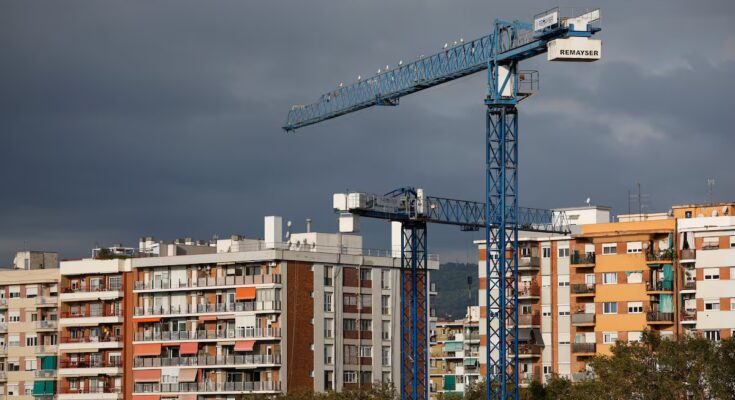In a context of housing crisis, when having a job no longer guarantees access to housing, the CC OO union of Catalonia proposes that future collective agreements include “clauses on direct aid and economic compensation” that make it easier to have a roof over your head. Specifically, from the congress that the union held last spring came ideas such as housing integration for workers who need it, interest-free advances or loans to pay first expenses, help for moving if they arise from job changes, or for commuting to work if the lack of apartments forces them to live far away. The general secretary of the CC OO in Catalonia, Belén López, explained this on Wednesday, during the presentation of the study in Barcelona. Access to housing, a class problem. Given the territorial differences in the housing crisis, the union also suggests that the official rental price index on which the regulation of the Housing Act is based takes into account the salaries of each territory.
“Having or having decent housing has become a key factor of inequality in Catalonia, which is added to the other leg that facilitates a life project, that is, having a decent wage. Hence the need to talk about it in collective bargaining”, stated the General Secretary regarding a series of proposals that “will have to be placed at the negotiating tables for collective agreements”. The union leader recalls that the agreements already contain additions, advances or aid for other issues.
Regarding the title of the study, A question of class, Its authors, the sociologists Irene Galí and Mariña Couceiro, underlined that “with territorial singularities or differences, the common denominator is that if you have money you will have access to housing, otherwise you will not have housing”. “Ownership has always been a class issue, but now the possibility of access takes on an importance that it didn’t have before, because even paid work does not guarantee having a home. The combination of work and home has disappeared; now, beyond employment, having or not having a home articulates the rest.”
The gap
The report analyzes exhaustively, and with interesting breakdowns by territory, data on real estate (public and private), its uses, construction or rental boom and its regulation. And one of the new features is to quantify the gap between owners of rental apartments and tenants. And the average income of families who have rented apartments is 77% higher than that of tenant families: 59,464 euros a year compared to 33,445. The authors of the study confirmed, also based on the fact that almost half of the rented apartments in Barcelona belong to owners who have more than five, that “the owner of a rented house does not need it to live, while being a tenant has become a factor of impoverishment”.
Even subtracting the 10,973 euros that owners earn on average, as underlined by the 2023 Living Conditions Survey, “their income would be well higher than that of tenants” they underlined, underlining that “those who obtain the benefits of rent are the wealthier social classes”. The data also indicates that the risk of poverty is seven times higher for renting households. “The data dismantles very ideological stories, according to which those who rent supplement their pension and if rents are regulated vulnerable people are attacked: those who have apartments speculate, regardless of specific situations”, they stated.
The work examines housing indicators over the last two decades in Catalonia. Data such as that in the community there are four million houses, of which 66% are located in the area around Barcelona and a quarter are second homes. We also remember that 10.7% are empty, according to the National Institute of Statistics. This also explains the regression of public assets, due to the end of the protection of apartments protected for purchase, and the lack of rental VPOs, which means that there are 56 people requesting accommodation for every apartment built.
The report also addresses the fact that the number of citizens living on rent has skyrocketed since the 2008 housing crisis, and that both purchase and rental prices have continued to rise since 2014. “Decent housing is inaccessible for a large part of the population,” we read in the work, which reminds us that it has a greater impact on migrants or people with less financial capacity.



